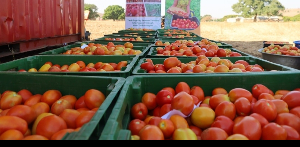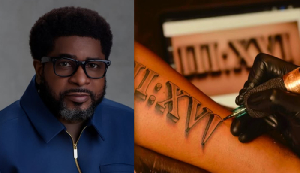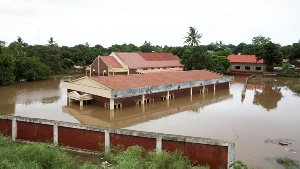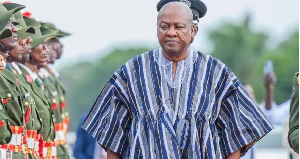No two elections are exactly the same. The dynamics of each election are peculiar and unique. The 2020 general elections in Ghana will be the eighth consecutive one in the Fourth Republic.
1992
The first general elections in 1992 had many unique features. First, it was to usher in a new constitution. Second, it was the first election which had a sitting military head of state run to become a civilian president although there had been some military coups prior to that period. Previous military heads of state either chose not to run or were not alive to run.
1996
Then 1996. Now civilian President Jerry Rawlings run for a second term but his vice president had become running mate to the opposition candidate John Kufuor. As was expected Rawlings won a second mandate to serve four more years.
2000
Rawlings’ time run out in 2000 and could not run again as dictated by the Constitution. That election was the first time an elected sitting president could not contest because he had served out his constitutionally required term. Until then, elected leaders in the first, second and third republics could not exhaust their tenure in office. Nkrumah, Busia and Limann were all overthrown by military personnel. Further, the 2000 election marked a milestone where an opposition candidate won against the incumbent party’s candidate and power was peacefully transferred in accordance with constitutional provisions. It was also the first time a sitting vice president run as the standard bearer.
2004
Fast-forward to 2004, Rawlings’ successor President John Kufuor run an encore against the sitting vice president he defeated in 2000, John Atta Mills. On this occasion, it was the first time in the Fourth Republic where candidates of the two major political parties faced each other again, except that this time the former opposition candidate was the incumbent and the challenger (now opposition candidate) was a former vice president.
2008
Kufuor finished his maximum constitutional term and could not run again. Atta Mills ran again, but this time against Kufuor’s Foreign Minister Nana Akufo-Addo. The unique feature about this election came up after the initial vote. The results were too close that even after the second round, elections had to be held in one more constituency (which was outstanding due to delays in getting election materials to voting centers). The 2008 run off was the closet election ever run in the country.
2012
2012 was a mixed bag of sadness, nostalgia and sympathy because President Mills kicked the bucket about six months prior to the elections. John Mahama, the vice president who had become president upon the unfortunate demise of his boss contested Akufo-Addo. The contest was close but Mahama was declared winner. A challenge to the Electoral Commission’s declaration was filed at the Supreme Court; the Court affirmed the EC’s verdict. This was the first time a presidential election results were challenged in the highest court of the land.
2016 and 2020
2016 – John Mahama lost, Akufo-Addo won. 2016 ended the “John dynasty;” the first time in the Fourth Republic where the President is not called John. It was also the first time a sitting president lost his bid for re-election. Until then, Mahama had never lost an election. He won all his contests for the Bole-Bamboi parliamentary seat in 1996, 2000 and 2004. He voluntarily opted not to run again in 2008 but to pursue other interests outside politics. However, Professor Mills invited him to be his running mate for that year’s election. His charm helped Mills that election. Then when he became his party’s candidate for 2012 upon the death of President Mills, he won again. Thus the 2016 defeat must have been a difficult jolt in his career.
On the other hand, Akufo-Addo had experienced a mixture of defeats and victories in his political career. He, like Mahama, had won all his parliamentary contests in 1996, 2000 and 2004. However, his attempts at becoming president had been characterized by several rounds of losses. First, he lost his party’s presidential primaries to John Kufuor for the 2000 elections, lost to Mills in 2008 and to Mahama in 2012. 2016 was a climax for him and an anti-climax for Mahama.
Heading into the 2020 polls, Mahama is back and Akufo-Addo is determined to stay put. It’s the first time the sitting president is being challenged by his immediate predecessor. This easily makes the basis for the votes a matter of records.
Records
The Mahama administration beats its chest about what it calls unprecedented infrastructural development. Clearly, the administration invested heavily in infrastructure – schools, roads, water systems, rural electrification and so on. His opponents allege that the cost of many of these projects were inflated. At the same time, macroeconomic indicators, energy supply, remittances to statutory funds (such as health insurance fund, district assemblies common fund, GETFund and others) and perception about corruption were not that impressive. Could these be the reason for his defeat at the polls?
In office, Akufo-Addo has improved the macroeconomic indicators, invested heavily in education and other social services, and building some physical infrastructure as well in education, transportation and industry. His critics point to large size of his government, too many family members including his daughter appointed to public offices, and heavy-handed clean-up of the financial sector.
The real weight of these observations will be seen when Ghanaians go to the polls on December 7.
Opinions of Tuesday, 8 September 2020
Columnist: Terry Mante















